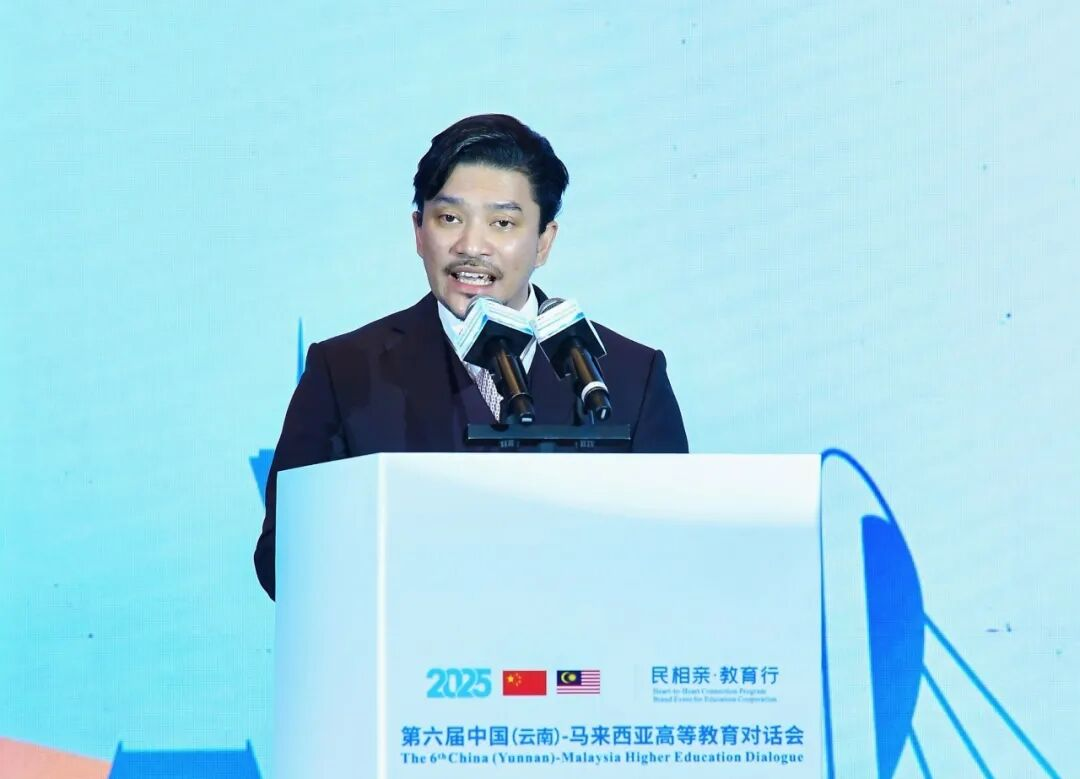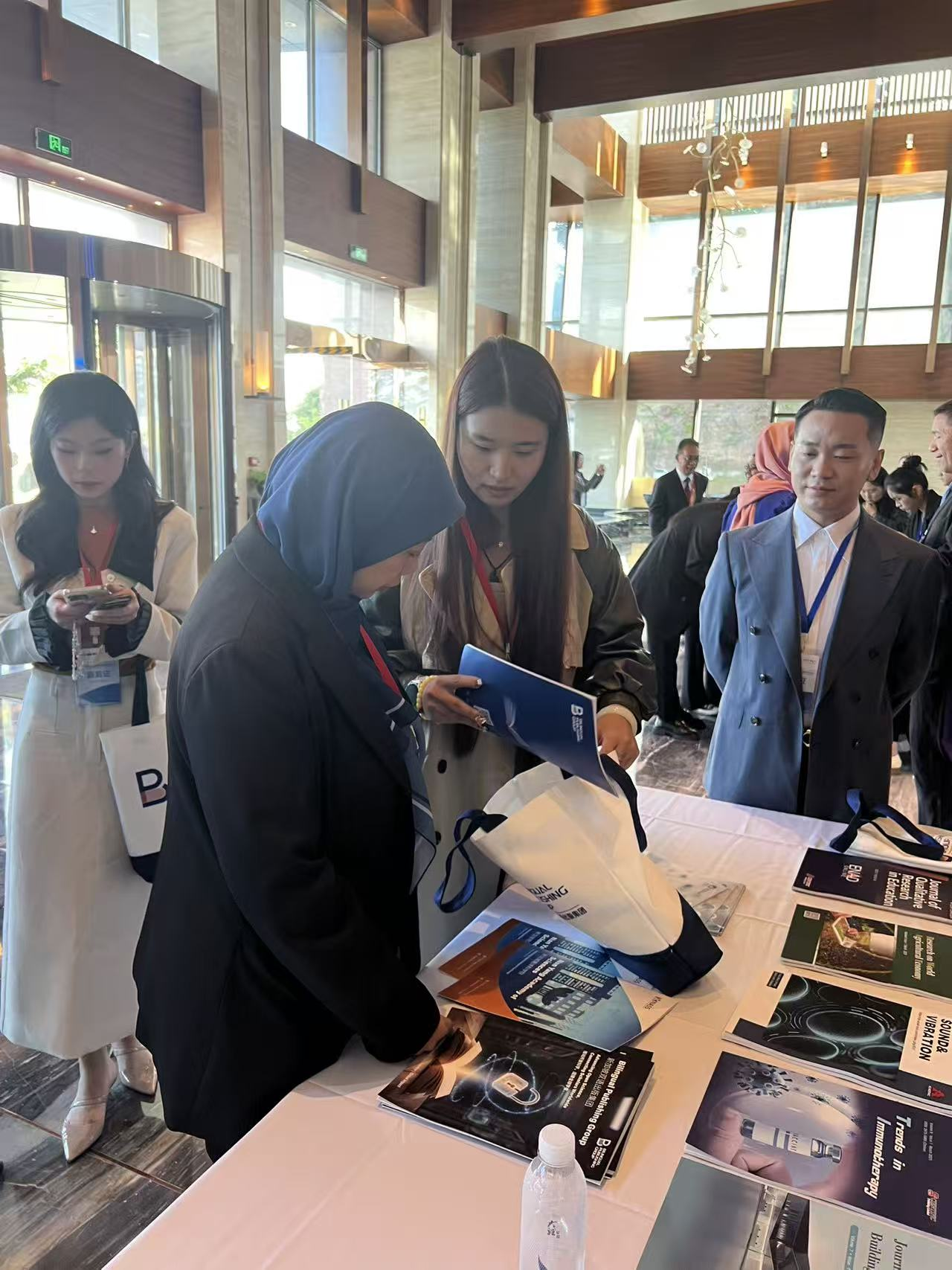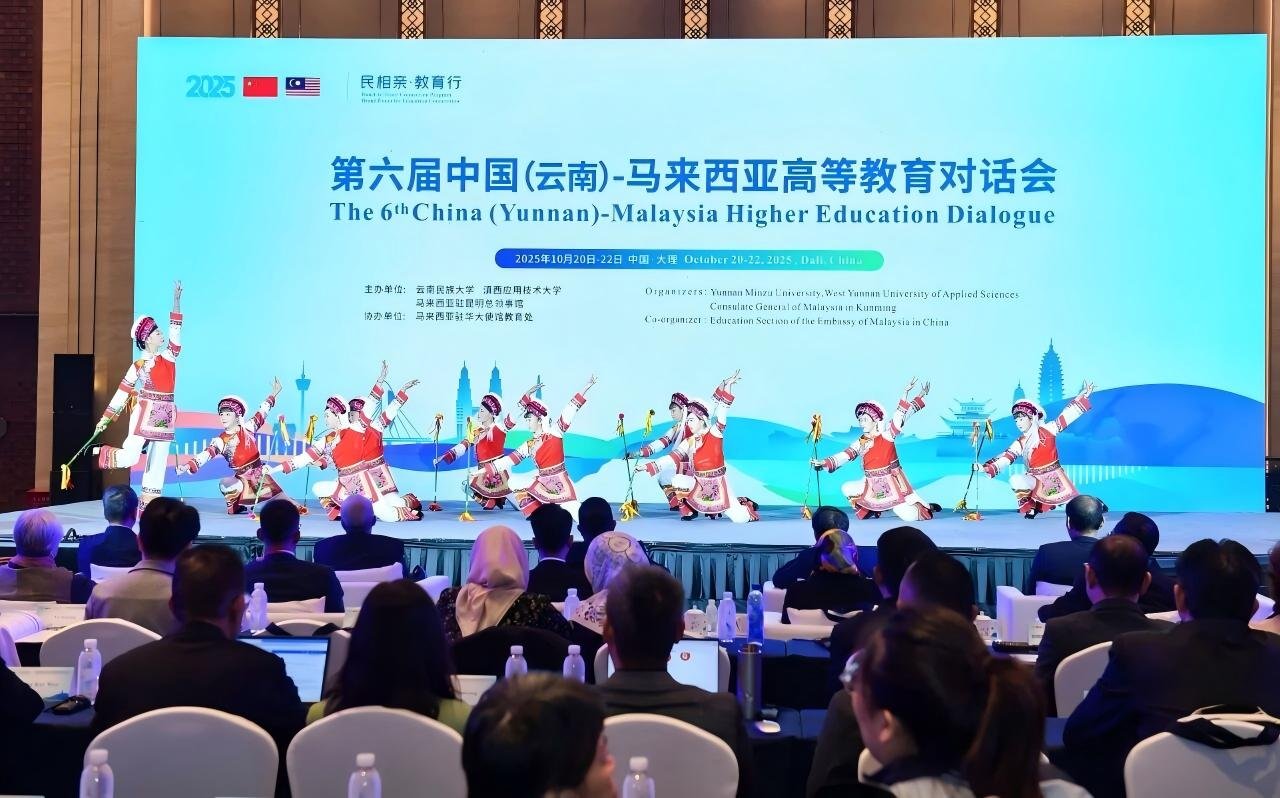
On October 21, 2025, the 6th China (Yunnan) - Malaysia Higher Education Dialogue was grandly convened in Dali. Themed “Unceasing Harmonies for a New Chapter: China-Malaysia Collaborates to Forge the Future”, this session is intended to establish a China-Malaysia educational cooperation platform, deepen pragmatic collaboration between the two nations in such domains as talent cultivation, scientific research cooperation, and cultural exchanges, and jointly explore new paradigms for the internationalization of higher education.
This dialogue is co-hosted by Yunnan Minzu University, West Yunnan University of Applied Sciences, and the Consulate General of Malaysia in Kunming, with the Education Division of the Embassy of Malaysia in China acting as the co-organizer. Approximately 130 representatives, including university leaders, scholars, and enterprise delegates from both China and Malaysia, assembled to deliberate on educational cooperation and innovative development.
Education as a Bridge; Cooperation as a Link
At the solemn opening ceremony, remarks were delivered respectively by Mukhriz bin Tamiz Bahlia, Deputy Director of the Polytechnic Colleges and Vocational Education Division under Malaysia’s Ministry of Higher Education; Professor Wang Qiliang, President of Yunnan Minzu University; and Mukhriz bin Sallehuddin Mohd Idris, Education Counsellor of the Embassy of Malaysia in China.

Muhammad Tamiz bin Bahlia, Deputy Director of the Polytechnic Colleges and Vocational Education Division under Malaysia’s Ministry of Higher Education, delivered an address at the opening ceremony.
Muhammad Salehuddin Mohd Idris, Education Counsellor of the Embassy of Malaysia in China, delivered an address at the opening ceremony.
The opening and closing ceremonies were chaired by Professor Shao Weiqing, Vice President of Yunnan Minzu University; the thematic conference was presided over by Professor Suo Xinyu, Vice President of West Yunnan University of Applied Sciences, who also delivered a concluding speech.
Bilingual Publishing: A New Model of Academic Publishing Driven by AI
As a representative of an international academic publishing institution, the Bilingual Publishing Group was invited to attend this grand event, and together with university leaders, experts and scholars from China and Malaysia, it explored the future direction of higher education internationalization and shared the innovative paths of academic publishing in educational cooperation.
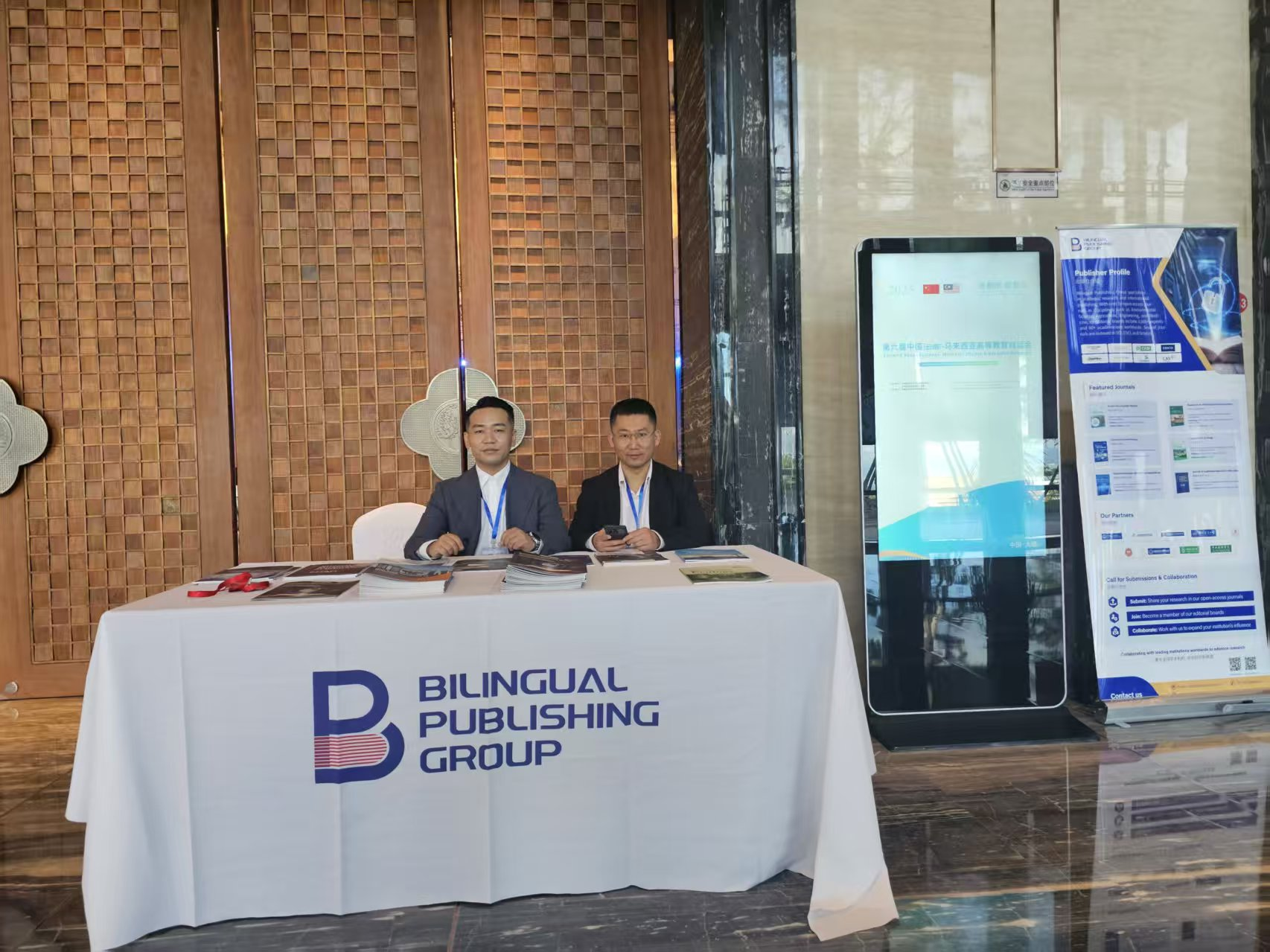
As a representative of an international academic communication platform, the Bilingual Publishing Group shared its experience and achievements in AI-empowered publishing, bilingual academic communication, and the development of open access systems during the conference.
A representative of the Group stated in a speech at the parallel forum that the publishing industry is emerging as a new fulcrum for promoting China-Malaysia educational cooperation
“From the emergence of academic ideas to their international communication, publishing serves as a crucial bridge connecting scientific research with education, and theory with practice. We aim to enable more research outcomes of scholars from China and Malaysia to be recognized globally through an intelligent publishing system.”
During the speech, the Group highlighted its "International Academic Achievements Bilingual Publishing Initiative" for Southeast Asia. Leveraging intelligent manuscript review systems, AI translation engines, and a global distribution network, it provides end-to-end solutions for the dissemination and application of academic achievements.
On the sidelines of the conference, the Group reached a preliminary cooperation intention with a number of universities from China and Malaysia, planning to conduct in-depth cooperation in areas such as conference proceedings publishing, academic series collaboration, and open access resource sharing.
The Group emphasized that China-Malaysia educational cooperation should not only be reflected in talent development and scientific research, but also deepen mutual understanding and promote joint development through academic publishing, knowledge dissemination, and cultural translation. Relying on the cooperation opportunity with universities from both countries, the Group will promote the establishment of an academic publishing cooperation mechanism for Southeast Asia, jointly build bilingual publishing projects, academic translation series, and an international conference proceedings publishing system, and provide more efficient international channels for the dissemination of research achievements by Chinese and Malaysian scholars.
Publishing Empowers International Cooperation
As a prominent player in the global academic publishing landscape, the Bilingual Publishing Group remains committed to advancing international academic mutual trust and cultural mutual learning through publishing.
At present, the Group administers over 50 open access journals, spanning disciplines including environmental science, agriculture, engineering, medicine, linguistics, and education. It has aggregated more than 2,000 experts and over 60 academic leaders globally, with a number of its journals indexed in databases such as SCI, ESCI, and Scopus. The Group also maintains in-depth collaboration with international academic platforms like Crossref, Google Scholar, CABI, CAS, and EBSCO, so as to continuously facilitate the global dissemination of scientific research outputs.
We firmly believe that academic publishing is not merely the culmination of research, but rather an amplifier of academic value.
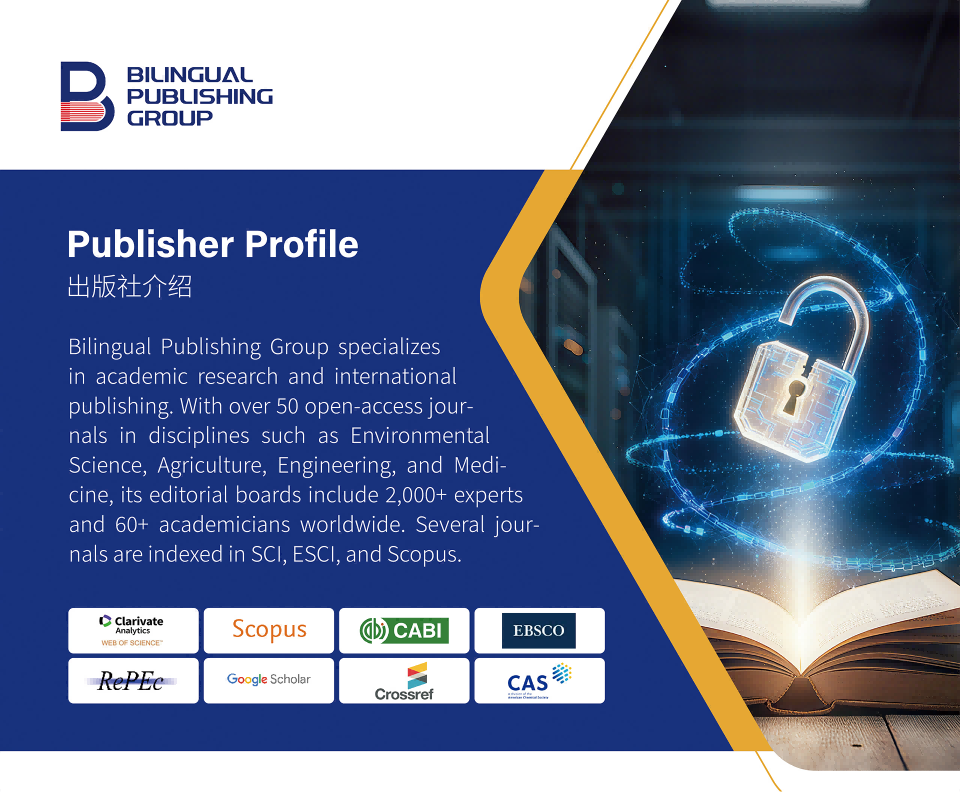

Looking Ahead: Promoting Academic Mutual Trust and Cultural Mutual Learning Through Publishing
Going forward, the Bilingual Publishing Group will continue to leverage its AI-driven bilingual publishing system as a cornerstone, deepen cooperation with universities and research institutions from China and Malaysia, promote the establishment of an innovative "Academic Publishing + Educational Internationalization" model, and contribute publishing expertise to the "Belt and Road" educational cooperation and regional academic development.










